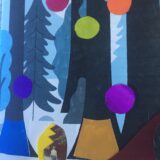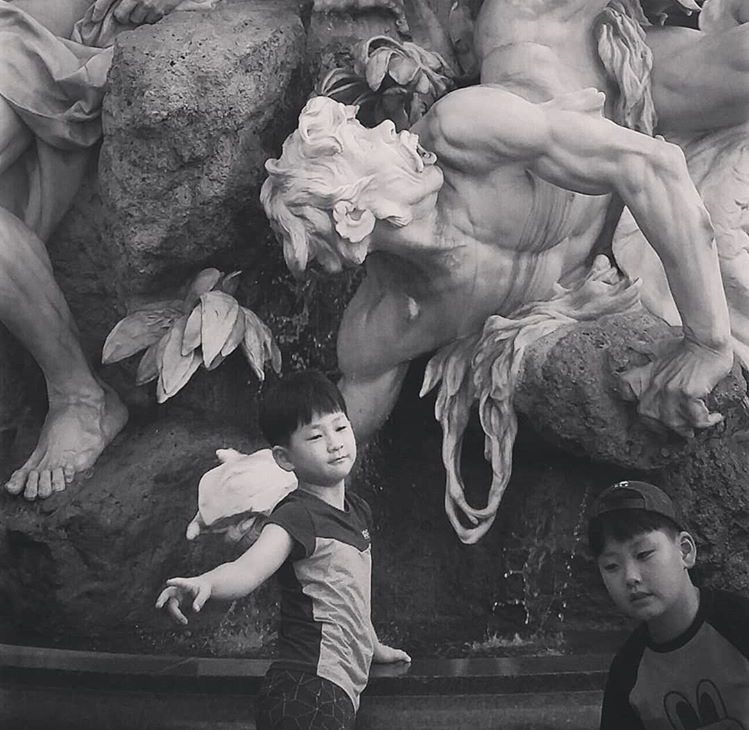In times of uncertainty and change, we all are familiar with the swings of feeling hope and fear.
But hope and fear are not evenly distributed among social groups or historical periods. There are groups where after a time, hope outweighs fear because the world has been offered to them as a set of possibilities that they manage at will. Their uncertainty is about choosing among which options might lead to outcomes they imagine as most desirable.
For other groups fear outweighs hope to such a degree because the world happens to them without their being able to make the world happen for them. Theirs is a downward uncertainty because the world happens to them in ways that depend little on them. So when fear outweighs hope, it turns into a certainty of fate.
Judith Butler* writes, ” We cannot talk about a body without knowing what supports or lack of supports that body lives in relation . Dependency of humans and other creatures on institutional supports exposes a vulnerability that we have when unsupported.”
But behavioral economists have come to explain what happens when we live with the supports of privilege. After a while we no longer experience it as privilege but as the normal state of things. It just happens over time, like being the fish in the water, its just what you live within.
So bodies get armored and feelings hardened. When the experience of human vulnerability is no longer shared we also no longer see our fates as linked to each other, but are more vulnerable to amnesia and blindness. Amnesia to history and blindness to complexity and similarities in our humanity.
Here is Deborah Eisenberg from Your Duck is My Duck.
“Way back–oh, not all that long ago, actually, just a couple of years, but back before I’d gotten a glimpse of the gears and levers and pulleys that dredge the future up from the earth’s core to its surface–I was going to a lot of parties.
And at one of these parties there was a couple, Ray and Christa, who hung out with various people I sort of knew, or, anyhow, whose names I knew. We’d never had much of a conversation, just hey there, kind of thing, but I’d seen them at parties over the years and at that particular party they seemed to forget that we weren’t actually friends ourselves.
Ray and Christa had a lot of money, a serious quantity, and they were also both very good-looking, so they could live the way they felt like living. Sometimes they split up, and one of them, usually Ray, was with someone else for a while, always a splashy, public business that made their entourage scatter like flummoxed chickens, but inevitably they got back together, and afterward, you could’t detect a scar.”
Eisenberg is great at describing sliding across the surface of encounters so there is no joy or pain. and if there is contact, just buffing out the marks. These are people dead before their time. What happened to the light?
In Rust Belt Arcana, Matt Stansberry writes that “while we perceive darkness, we don’t experience it in the same way as generations before us. Over 99 percent of the population of the U.S. and Europe no longer see the Milky Way, but instead look up to a luminous orange fog of our own creation hanging overhead”.
Imagine not just a generation ago, but prior to the industrial revolution what the skies were like. In Waking up to the Dark, Clark Strand says “darkness has always been necessary for our health and the health of the natural world, and we now suffer from its loss”. Darkness, sleep, and quiet, is an ancient liminal space where we find rest, renewal and a readiness again for the light. But in modern times we cling to artificial lights, both on our screens and with the power on, we can pretend to be in perpetual light, to keep up our productivity and arousal.
Stansberry asks, “Imagine looking up and seeing the face of eternity every night, to be reminded of our place in the universe by galactic dust winding toward infinity. How would it impact our humility and reverence if we had that perspective”?
We have to really want something deeper, and let ourselves feel both the pain and joy of the world. Rilke described it like this:
You see, I want a lot.
Perhaps I want everything:
the darkness that comes with every infinite fall
and the shivering blaze of every step up.
So many live on and want nothing
and are raised to the rank of prince
by the slippery ease of their light judgments.
But what you love to see are faces
that do work and feel thirst…
You have not grown old, and it is not too late
to dive into your increasing depths
where life calmly gives out its own secret.
—Rilke (translated, Robert Bly)
Be well,
Marlene
Photo by Hans Laping, @hansdork
*Notes Toward a Performative Theory of Assembly
*Please support Independent Bookstores



